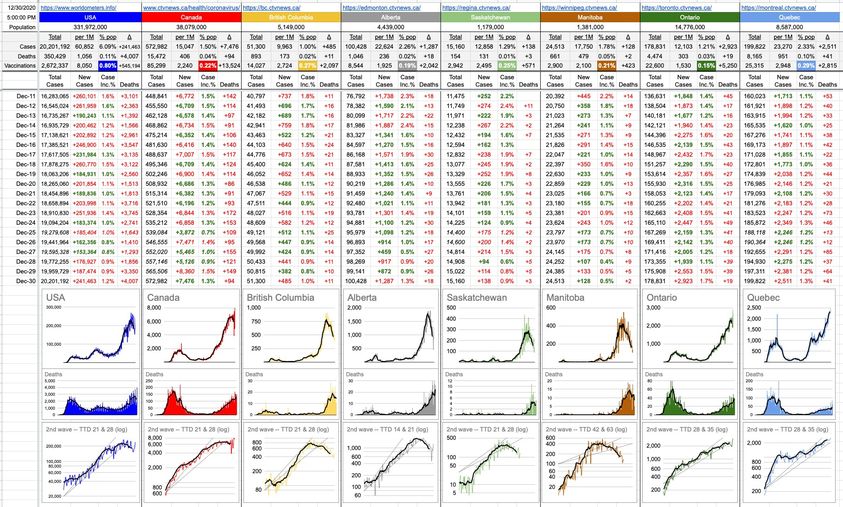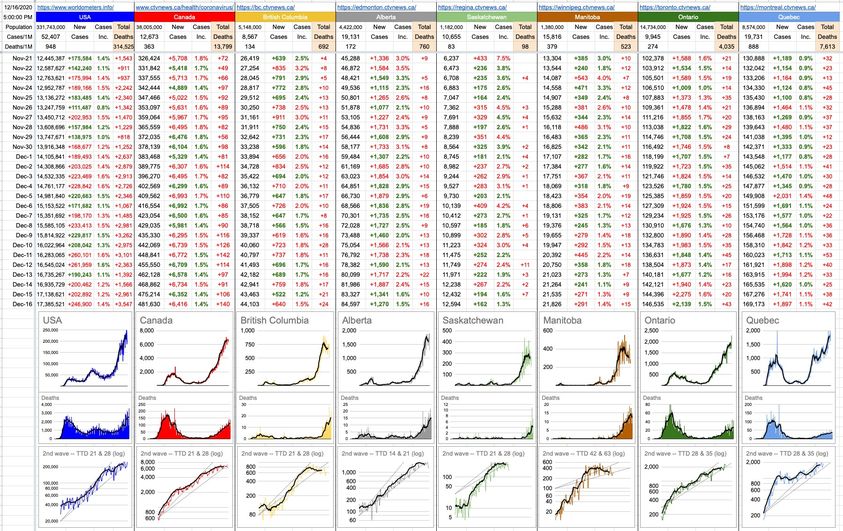December 30, 2020
Completely unrelated to everything… just a random thought.
While stereotypes often exist for a reason – there’s usually some fundamental tiny grain of truth to them and/or some origin that can be pointed to – I don’t really understand this “Karen” meme.
The name Karen has now come to imply the proto-typical entitled white woman with an attitude… the “I’d like to speak to the manager” Karen or the call-the-cops-on-someone-Black-for-no-reason Karen or, more recently, Coronavirus Karen who proudly won’t wear a mask in public, is anti-vaxx, and might even cough on you if you get too close.
With respect to the Karens (and Karins) I’ve known throughout my life (I counted 9), all of them have been (and continue to be) kind, caring, empathic and thoughtful people. Like, exceptionally so. Statistically, at least one of those nine should be this stereotypical “Karen”… but no, not in my case. On the flip side, I know exactly 4 people with a different same name who are all, coincidentally, awful people – for their own, individual reasons. That’s also statistically off the charts.
This got me thinking, and I went off hunting for the origins of this whole Karen thing… but there’s no real answer; only speculation. It might be from a bit comedian Dane Cook did in 2005. It might be from a scene in “Mean Girls”. It might be from some Reddit thread where a guy continually complained about his ex-wife Karen, to the extent entire new SubReddits were created for the specific content.
Just like attaching “-gate” to something implies scandal… locally, we’ve had Bingogate, Ferrygate, Robogate, Tunagate… Chrétien had his Shawinigate… the world has created hundreds of -gates over the years… all spawned after Nixon’s Watergate scandal… now we have lots of different Karens.
There was an actual hurricane named Karen in 2019. There was an actual woman in Australia named Karen recorded trying to tear down her neighbour’s Aboriginal Flag. Other than that, it’s just a label:
Permit Karen who called police on her Black neighbours installing a patio.
Whitefish Karen, arrested after intentionally coughing on people after being told to wear a mask.
Kroger Karen, who stood in front of a Black woman’s car to block her from leaving a Detroit grocery store parking lot while she called police to report… that the woman’s child had stood on a shelf to take down an item too high to reach.
San Francisco Karen, who called the police to report a Filipino man stenciling “Black Lives Matter” on a retaining wall… on his own property.
Bunnings Karen, who threatened to sue the hardware store Bunnings for requiring her to wear a mask.
So prolific has the term become, it’s made its way to men as well; Donald Trump has been called the “Karen in Chief” and Elon Musk was labelled “Space Karen” after a stupid Tweet.
Endless Karens.
Back in July, Domino’s in Australia ran a campaign… offering free pizza to all the “nice Karens”. It went OK in Australia, but it faced backlash in New Zealand… where the campaign was pulled and Domino’s had to apologize. The campaign itself got “Karen’d”.
More recently, in October, San Francisco passed an act to prohibit the fabrication of racially-biased emergency reports. It was named the Caution Against Racially Exploitative Non-Emergencies (CAREN) Act.
It looks like the whole Karen thing is here to stay… which is unfortunate, especially for all the people named Karen/Karin/Karyn/Caryn/Caren and whatever other spelling I may have missed. Shoutout to all of you… I’m sure you’re all awesome people.
Well… most of you. Unless you’re an actual Karen.
28 Likes, 1 Shares






